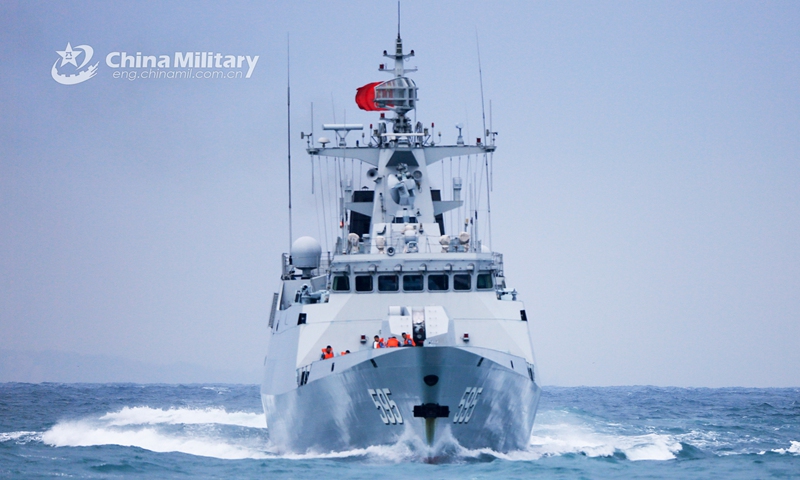US attacks China's defense sector with more 'lies'
By Liu Xuanzun and Wang Cong Source:Global Times Published: 2020/6/2 20:18:40 Last Updated: 2020/6/2 20:49:40
Targeting Chinese students, firms won’t hold China back, only hurting US interests: experts

White House
Even as the US political establishment is under siege amid nationwide riots that have plunged the country into chaos, US officials, instead of addressing profound domestic woes, waged a new series of attacks against China targeting Chinese students and companies based on what Chinese officials and experts dismiss as lies about nonexistent links between ordinary students, businesses and the Chinese military.
Washington's latest actions and plans to restrict visas for thousands of Chinese students and ban US investors pouring money into Chinese firms it deems being connected to the Chinese military foreshadows a further escalation in the China-US tit-for-tat trade and technology tussle. The US' national security claims are so vaguely defined that all Chinese personnel and businesses could be at risk of a US crackdown and if such actions occur, they will surely be met with swift retaliation from China, experts said on Tuesday.
Washington's move, which appears to be a last-ditch effort to curtail the rapid rise of China's technological prowess in both civilian and military arenas, will not only be futile in its ill-fated attempts to contain China but also undermine the US' own economic interests, Chinese military experts noted.
'More lies'
Following a proclamation issued by US President Donald Trump on Friday that limits visas for some Chinese students and scholars who Trump asserted without evidence assist the Chinese military to acquire US technology, US Secretary of State Mike Pompeo on Monday sought to defend the move amid fierce backlash.
In a statement, Pompeo said that the US "values" contributions made by international students and scholars, including those from China, but repeated Trump's claims, again without evidence, that the Chinese People's Liberation Army (PLA) was using the visa program to steal technology from the US.
In Beijing, when asked about Pompeo's claims, Zhao Lijian, spokesperson for the Chinese Foreign Ministry, did not mince his words.
"Pompeo is used to creating lies to find excuses for his wrong actions," Zhao told a routine press briefing on Tuesday, noting that the US' move based on "far-fetched" excuses of national security will be "detrimental" to both sides.
The immediate impacts of Trump's proclamation will be likely felt by at least 3,000 Chinese students. US media outlets have listed several Chinese universities that they allegedly claim have ties with the PLA, including the Northwestern Polytechnical University, Harbin Engineering University and Beijing Institute of Technology.
They also listed several Chinese defense companies, including warplane manufacturer the Aviation Industry Corporation of China, aircraft engine producer Aero Engine Corporation of China, and missile and space giant China Aerospace Science and Technology Corporation.
However, these media reports provided no evidence that those universities and corporations are engaged in stealing US technology as US officials have groundlessly claimed. Several Chinese students have disclosed to the Global Times that they were not exposed to any confidential technology.
"This is just another excuse for the US to crack down on China in its attempt to curtail China's development," Li Yong, deputy chairman of the Expert Committee of the China Association of International Trade, told the Global Times on Tuesday, noting that the latest move by Washington will open up a new front where more Chinese companies could be targeted because of the "lowest standards" set by US officials.
In a move that could lead to more of a direct impact on Chinese and foreign companies, several US lawmakers have proposed a plan that will ban US companies and citizens from investing in foreign defense companies that have substantial contracts with the Chinese military.

The guided-missile frigate Chaozhou (Hull 595) attached to a frigate flotilla with the navy under the PLA Eastern Theater Command steams in waters of the East China Sea during a maritime realistic training exercise from May 8 to 11, 2020.Photo:China Military
Futile efforts
However, those moves will unlikely have any major impact on China's military programs because China is accustomed to independent development after long-term bans of arms sales and technology transfer imposed by Western countries, defense experts said on Tuesday.
"China would not allow foreign investment to become involved in China's major military programs in the first place, and Chinese arms firms are abundantly funded," Song Zhongping, a Chinese military expert and TV commentator, told the Global Times on Tuesday, noting that the US move also exposes their uneasiness around China's rapid rise in certain areas.
The US is particularly wary of three high-level technology fields that China is currently developing: innovative technology, new materials and advanced workmanship, which are essential to both military and civilian projects, according to Song.
Industry insiders told the Global Times under the condition of anonymity that the US move might be a last-ditch effort to contain China while the US believes it still can. In some fields like development of aero-engines, large aircraft, advanced aircraft carriers and nuclear-powered strategic missile submarines, China still lags behind the US, the insiders noted.
Even then, China is counting on its own independent capabilities and is only interested in cooperation in certain specific fields rather than depending on foreign companies, let alone the US ones, analysts said.
Still, China is open to foreign countries regarding military cooperation: China has made many arms purchases from Russia, highlighted by recent Su-35 fighter jet and S-400 air defense system deals, and it also cooperates with Ukraine in fields like aero-engines.
Even some European countries like France are eager to do business with China and want to lift the arms export ban, because China is such a huge market, Song said, noting that they know China's own arms industry is rapidly growing, and if they do not sell now they will forever lose the business opportunity.